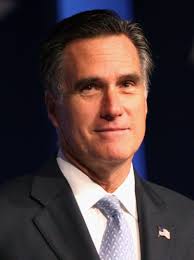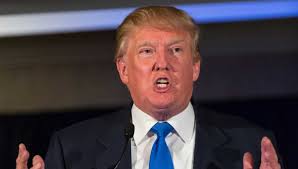Archive for March, 2017|Monthly archive page
ABC NEWS, ALTERNET, AP, BBC, BUGGING, BUZZFEED, CBS NEWS, CELLPHONE CAMERAS, CNN, CRIME, DAILY KOS, DRIVER'S LICENSES, ENCRYPTION SYSTEMS, FACEBOOK, FBI, JAMES B. COMEY, MOTHER JONES, MOVEON, NBC NEWS, NEWSWEEK, NPR, POLICE BRUTALITY, POLITICO, RAW STORY, REAL ID ACT, REUTERS, SALON, SEATTLE TIMES, SLATE, SURVEILLANCE, TERRORISM, THE ATLANTIC, THE CHICAGO SUN-TIMES, THE CHICAGO TRIBUNE, THE DAILY BEAST, THE GUARDIAN, THE HILL, THE HUFFINGTON POST, THE LOS ANGELES TIMES, THE NEW YORK TIMES, THE WALL STREET JOURNAL, THE WASHINGTON POST, TIME, TWITTER, U.S. NEWS & WORLD REPORT, UPI, USA TODAY, WIRETAPPING
In Bureaucracy, History, Law Enforcement, Politics, Social commentary on March 31, 2017 at 12:16 am
Want to report a crime to the FBI? First you’ll have to prove you deserve to even see an FBI agent.
Step 1: Visit a Federal building where the FBI has a field office. To enter, you must show a driver’s license or State ID card.
If your name is on the FBI’s “Ten Most Wanted” list, you won’t show it at all (let alone visit any FBI office).
And if you aren’t a notorious criminal or terrorist, handing over a driver’s license or State ID card with the name “John Smith” isn’t going to tell the security guard anything relevant about you.
It’s simply an invasion of your privacy in the name of security theater.

Step 2: You must remove
- Your belt;
- Your shoes;
- Your watch;
- Your wallet;
- All other objects from your pants pockets;
- Any jacket you’re wearing;
- Any cell phone you’re carrying.
All of these must be placed in one or more large plastic containers, which are run through an x-ray scanner.
Step 3: Assuming you avoid setting off any alarm system, you’re allowed to enter.
Step 4: Take an elevator to the floor where the Bureau has its office and walk into a large room filled with several comfortable chairs that sit close to the floor.
Step 5: Approach a window such as you find in a bank–made of thick, presumably bulletproof glass.

A secretary on the opposite side greets you, and asks why you’ve come.
Step 6: State your reason for wanting to speak with an agent. If the secretary thinks it’s legitimate, she requires you to show her your driver’s license or State ID card.
Step 7: Slide this through a slot in the glass window. Then she makes a xerox of this and hands the card back.
Step 8: Then you must fill out a single-page card, which requires you to provide your:
- Name;
- Address;
- Phone number;
- Social Security Number;
- The reason you want to speak to an agent.
Of course, you can refuse to fill out the card. But then the secretary will refuse to let you meet with an agent.
So the FBI has no qualms about requiring others to give up their privacy. But its director, James B. Comey, believes the public actions of police should be hidden from citizens’ scrutiny.
Addressing a forum at the University of Chicago Law School on October 23, 2015, Comey offered a series of possible reasons for the recent surge in crime rates in America.
Click here: FBI — Law Enforcement and the Communities We Serve: Bending the Lines Toward Safety and Justice
“Maybe it’s the return of violent offenders after serving jail terms. Maybe it’s cheap heroin or synthetic drugs. Maybe after we busted up the large gangs, smaller groups are now fighting for turf.
“Maybe it’s a change in the justice system’s approach to bail or charging or sentencing. Maybe something has changed with respect to the availability of guns….”
Then Comey offered what he thought was the real villain behind the rise in crime: Cellphones aimed at police.

FBI Director James B. Comey
“In today’s YouTube world, are officers reluctant to get out of their cars and do the work that controls violent crime? Are officers answering 911 calls but avoiding the informal contact that keeps bad guys from standing around, especially with guns?
“I spoke to officers privately in one big city precinct who described being surrounded by young people with mobile phone cameras held high, taunting them the moment they get out of their cars. They told me, ‘We feel like we’re under siege and we don’t feel much like getting out of our cars.’
“I’ve been told about a senior police leader who urged his force to remember that their political leadership has no tolerance for a viral video.
“So the suggestion, the question that has been asked of me, is whether these kinds of things are changing police behavior all over the country.
“And the answer is, I don’t know. I don’t know whether this explains it entirely, but I do have a strong sense that some part of the explanation is a chill wind blowing through American law enforcement over the last year. And that wind is surely changing behavior.”
The FBI has
- Lobbied Congress for an electronic “key” that would allow it to enter a cyber “back door” to eavesdrop on even those emails protected by encryption systems;
- Monitored electronic bugs and wiretapped phones–as well as social media sites like Facebook and Twitter;
- Treated law-abiding citizens like criminal suspects before they can even seek help from an agent; and
- Repeatedly preached to Americans that if they have nothing to hide, they should have nothing to fear from police surveillance.
But according to the FBI, citizens who aim cameras at cops in public places constitute a clear and present danger. This holds true even if they don’t interfere with the ability of police to make arrests.
They make heavily armed police feel so threatened that many officers are refusing to carry out their sworn duties.
2016 PRESIDENTIAL CAMPAIGN, ABC NEWS, ALTERNET, AMERICABLOG, AP, APRIL D. RYAN, BABY BOOMER RESISTANCE, BARACK OBAMA, BBC, BLOOMBERG NEWS, BUZZFEED, CBS NEWS, CIA, CNN, CONDOLEEZA RICE, CROOKS AND LIARS, DAILY KOS, DAILY KOZ, DONALD TRUMP, FACEBOOK, FBI, FIVETHIRTYEIGHT, GEORGE W. BUSH, HARPER’S MAGAZINE, HUFFINGTON POST, MEDIA MATTERS, MOTHER JONES, MOVEON, MSNBC, NATIONAL SECURITY AGENCY, NBC NEWS, NEW REPUBLIC, NEWSDAY, NEWSWEEK, NPR, PBS NEWSHOUR, POLITICO, POLITICUSUSA, RAW STORY, REUTERS, RUSSIAN INTELLIGENCE, SALON, SEAN SPICER, SEATTLE TIMES, SLATE, TALKING POINTS MEMO, THE ATLANTIC, THE CHICAGO SUN-TIMES, THE CHICAGO TRIBUNE, THE DAILY BEAST, THE DAILY BLOG, THE GUARDIAN, THE HILL, THE HUFFINGTON POST, THE INTERCEPT, THE LOS ANGELES TIMES, THE NATION, THE NEW REPUBLIC, THE NEW YORK TIMES, THE NEW YORKER, THE VILLAGE VOICE, THE WALL STREET JOURNAL, THE WASHINGTON POST, THINKPROGRESS, TIME, TRUTHDIG, TRUTHOUT, TWITTER, TWO POLITICAL JUNKIES, U.S. NEWS & WORLD REPORT, UPI, USA TODAY, VLADIMIR PUTIN, WIRETAPPING
In Bureaucracy, History, Military, Politics, Social commentary on March 30, 2017 at 12:10 am
On March 28, a White House press conference turned into a battlefield.
The contestants: White House Press Secretary Sean Spicer vs. April D. Ryan, the White House correspondent and Washington bureau chief for American Urban Radio Network.
Ryan noted that President Donald J. Trump would soon receive a visit from Condoleeza Rice, the former Secretary of State under President George W. Bush. She also noted that, in 2006, Trump had “called her a negative name.”
Although she didn’t utter the word, it was “bitch.”
Spicer: But at some point, the reality is that this president continues to reach out to individuals who’ve supported him, who didn’t support him, Republicans, Democrats, to try to bring the country together and move forward on an agenda that’s gonna help every American. That’s it. Plain and simple.

Donald Trump
[Actually, it isn’t “plain and simple.” Since taking office, Trump has made no effort to “reach out to individuals…who didn’t support him.” Nor has he tried “to bring the country together.”
[On March 4, he libeled Barack Obama in a series of tweets, accusing the former President of illegally wiretapping his phones at Trump Tower. Since making that accusation, Trump has offered absolutely no proof to back it up.
[Nor has the Justice Department or FBI come forward with such evidence.]
So, if you’re asking what we’re doing, I think we continue to do it. Which is to bring groups together that have been supportive of him, that haven’t been supportive of him, but that to share a goal which is finding common ground on areas of national security, of personal security, of economic security, of job creation, of safer communities, of education, of healthcare, that can unite us as a country and make the country stronger.
[It’s ironic that Spicer would say the administration’s goal is “finding common ground on areas” such as “healthcare.” Trump’s version of “repeal and replace” for “Obamacare” totally ignored any input by Democrats. On March 23, the House failed to pass Trumpcare because Republicans couldn’t agree to support it.
[Following her face-off with Spicer, Ryan had a message of her own for The Washington Post: “This is just par for the course, unfortunately. But I’ll be back. I’ll be back.”]
* * * * *
Trump’s admiration for Russian President Vladimir Putin has been well-established–by himself.
On the December 18, 2015 edition of MSNBC’s “Morning Joe,” Trump said: “He’s running his country, and at least he’s a leader. Unlike what we have in this country.”
The program’s host, Joe Scarborough, noted: “Well, I mean, [he’s] also a person who kills journalists, political opponents, and invades countries. obviously that would be a concern, would it not?”
TRUMP: “I think our country does plenty of killing, also, Joe, so, you know. There’s a lot of stupidity going on in the world right now, Joe. A lot of killing going on. A lot of stupidity. And that’s the way it is.”

Vladimir Putin
On July 22, 2016, Wikileaks released 19,252 emails and 8,034 attachments hacked from computers of the highest-ranking officials of the Democratic National Committee (DNC). Early reports traced the leak to Russian hackers.
At a press conference in Doral, Florida, Trump declared: “Russia, if you are listening, I hope you are able to find the 33,000 emails that are missing–I think you will probably be rewarded mightily by our press.”
This was nothing less than treason—calling upon a foreign power, hostile to the United States, to interfere in its Presidential election.
As President, Trump has defended the leader of the Communist world against hostile journalists and American Intelligence agencies.
On February 5, he gave an interview to Fox News host Bill O’Reilly. As startled viewers watched, there occurred this exchange:
O’REILLY: “Do you respect Putin?”
TRUMP: “I do respect him but—”
O’REILLY: “Do you? Why?”
TRUMP: “Well, I respect a lot of people but that doesn’t mean I’m going to get along with him. He’s a leader of his country. I say it’s better to get along with Russia than not.
“And if Russia helps us in the fight against ISIS, which is a major fight, and Islamic terrorism all over the world —that’s a good thing. Will I get along with him? I have no idea.”
O’REILLY: “But he’s a killer though. Putin’s a killer.”
TRUMP: “There are a lot of killers. We’ve got a lot of killers. What do you think—our country’s so innocent? You think our country’s so innocent?”
Trump launched his Presidential campaign on June 16, 2015.
According to The New York Times, by late October, 2016, he had aimed nearly 4,000 insulting tweets at 281 targets.
Among those insulted:
- Women
- Blacks
- Hispanics
- The news media
- Asians
- Muslims
- The disabled
- Prisoners-of-war
- The Pope
Considering his hair-trigger temper and willingness to insult virtually anyone, Trump’s careful, even fawning attitude toward Vladimir Putin stands out.
Following Trump’s February 5 remarks on Putin, House Minority Leader Nancy Pelosi said it best:
“I want to know what the Russians have on Donald Trump. I think we have to have an investigation by the FBI into his financial, personal and political connections to Russia, and we want to see his tax returns, so we can have truth in the relationship between Putin, whom he admires, and Donald Trump.”
2016 PRESIDENTIAL CAMPAIGN, ABC NEWS, ALTERNET, AMERICABLOG, AP, APRIL D. RYAN, BABY BOOMER RESISTANCE, BARACK OBAMA, BBC, BLOOMBERG NEWS, BUZZFEED, CBS NEWS, CIA, CNN, CONDOLEEZA RICE, CROOKS AND LIARS, DAILY KOS, DAILY KOZ, DONALD TRUMP, FACEBOOK, FBI, FIVETHIRTYEIGHT, GEORGE W. BUSH, HARPER’S MAGAZINE, HUFFINGTON POST, MEDIA MATTERS, MOTHER JONES, MOVEON, MSNBC, NATIONAL SECURITY AGENCY, NBC NEWS, NEW REPUBLIC, NEWSDAY, NEWSWEEK, NPR, PBS NEWSHOUR, POLITICO, POLITICUSUSA, RAW STORY, REUTERS, RUSSIAN INTELLIGENCE, SALON, SEAN SPICER, SEATTLE TIMES, SLATE, TALKING POINTS MEMO, THE ATLANTIC, THE CHICAGO SUN-TIMES, THE CHICAGO TRIBUNE, THE DAILY BEAST, THE DAILY BLOG, THE GUARDIAN, THE HILL, THE HUFFINGTON POST, THE INTERCEPT, THE LOS ANGELES TIMES, THE NATION, THE NEW REPUBLIC, THE NEW YORK TIMES, THE NEW YORKER, THE VILLAGE VOICE, THE WALL STREET JOURNAL, THE WASHINGTON POST, THINKPROGRESS, TIME, TRUTHDIG, TRUTHOUT, TWITTER, TWO POLITICAL JUNKIES, U.S. NEWS & WORLD REPORT, UPI, USA TODAY, VLADIMIR PUTIN, WIRETAPPING
In Bureaucracy, History, Military, Politics, Social commentary on March 29, 2017 at 12:05 am
It was the verbal equivalent of a prizefight.
In one corner was April D. Ryan, the longtime White House correspondent and Washington bureau chief for American Urban Radio Network.

April D. Ryan
By MahoganyBooks [CC BY 3.0 (https://creativecommons.org/licenses/by/3.0)%5D, via Wikimedia Commons
In the other corner was Sean Spicer, White House press secretary for President Donald J. Trump.
Since taking office on January 20, Trump has been ensnared in a series of revelations about collaboration between members of his 2016 Presidential campaign and Russian Intelligence agents.
The FBI, CIA and National Security Agency have officially stated that Russian Intelligence played a major role in trying to sway the election for Trump.
Trump has repeatedly attacked the “fake news” media reporting these revelations. Chief among his targets: CNN, The New York Times and The Washington Post.
On March 28, disgusted with the administration’s stonewalling and outright lying, reporter April Ryan directly confronted Sean Spicer at a White House press conference.
The result was explosive.
April Ryan: With all of these investigations, questions of what is, is? How does this administration try to revamp its image two and a half months in? You’ve got this Yates story today, you’ve got other things going on. You’ve got Russia. You’ve got, you’ve got wiretapping. You’ve got —
Sean Spicer: No, we don’t have that. You’ve …
Ryan: There are investigations on Capitol Hill–
Spicer: No, no, no. I get it. But you keep — I’ve said it from the day that I got here until whatever that there is no connection. You’ve got Russia. If the president puts Russian salad dressing on his salad tonight, somehow that’s a Russian connection.
Sean Spicer
But every single person. No. Well, no, that’s … I appreciate your agenda here. But the reality is … oh no, no. Hold on, no, at some point, report the facts. The facts are that every single person who has been briefed on this subject has come away with the same conclusion. Republican, Democrat.
[This is a lie. In fact, the more digging that goes on, the more embarrassing revelations turn up of collusion between high-ranking administration officials and Russian agents or monies.]
So, I’m sorry that that disgusts you. You’re shaking your head. I appreciate it. But, but …
Ryan: … I’m trying to understand …
Spicer: But understand this. At some point, the facts are what they are. And every single person who has been briefed on this situation with respect to the situation with Russia, Republican, Democrat, Obama-appointee, career, have all come to the same conclusion.
[Another lie. The FBI is now investigating contacts between Russian Intelligence agents and members of the Trump Presidential campaign.]
At some point, April, you’re gonna have to take no for an answer with respect to whether or not there was collusion.
Ryan: How do you change the perception of, of…
Spicer: We’re going to keep doing everything we’re doing to make sure that the president’s — that what the president told the American people he was going to do, to fulfill those pledges and promises that he made, to bring back jobs, to grow the economy, to keep our nation safe.
That’s what he’s been focused on since day one. We’re going to keep focusing on that every single day.
[In short: We’re going to continue to lie and deny.]
Ryan: Condi Rice [Secretary of State under President George W. Bush] comes Friday. Condi Rice did not support this president. She did not go to the convention. She comes, what is on the agenda?
And how is their relationship? Has it healed since 2006 when he used a very negative word to describe her?

Condoleeza Rice
[The word was “bitch.” In 2006, Trump told an audience at a Learning Annex convention speech: “Condoleezza Rice, she’s a lovely woman, but I think she’s a bitch. She goes around to other countries and other nations, negotiates with their leaders, comes back and nothing ever happens.”]
Spicer: So here’s what I’ll tell you. It’s interesting that you ask those two questions back to back. On the one hand you’re saying what’re we doing to improve our image? And then here he is, once again, meeting somebody that hasn’t been a big supporter of his. Hold on ...
Ryan: He called her a negative name in 2006.
Spicer: But, April, hold on. It seems like you’re hellbent on trying to make sure that whatever image that you want to tell about this White House stays, because at the end of the day. Let me answ ….
Ryan: … call her that name. I am just reporting what —
Spicer: Okay, but, you know what, you’re asking me a question and I’m going to answer it. Which is, the president, I’m sorry, please stop shaking your head again.
But at some point, the reality is that this president continues to reach out to individuals who’ve supported him, who didn’t support him, Republicans, Democrats, to try to bring the country together and move forward on an agenda that’s gonna help every American. That’s it. Plain and simple.
[Actually, it isn’t “plain and simple.” And additional proof of this will be offered in Part Two of this series.]
ABC NEWS, ALTERNET, AMERICABLOG, ANCHOR BABIES, AP, BABY BOOMER RESISTANCE, BBC, BILL DE BLASIO, BLOOMBERG NEWS, BUZZFEED, CBS NEWS, CNN, CROOKS AND LIARS, DAILY KOS, DONALD TRUMP, FACEBOOK, FIVETHIRTYEIGHT, HARPER’S MAGAZINE, HISPANICS, HUFFINGTON POST, ILLEGAL ALIENS, illegal immigration, MEDIA MATTERS, MEXICAN WALL, MEXICO, MOTHER JONES, MOVEON, MSNBC, NBC NEWS, NEW REPUBLIC, NEWSDAY, NEWSWEEK, NPR, PBS NEWSHOUR, POLITICO, POLITICUSUSA, RAW STORY, REUTERS, SALON, SEATTLE TIMES, SLATE, TALKING POINTS MEMO, THE ATLANTIC, THE CHICAGO SUN-TIMES, THE CHICAGO TRIBUNE, THE DAILY BEAST, THE DAILY BLOG, THE GUARDIAN, THE HILL, THE HUFFINGTON POST, THE INTERCEPT, THE LOS ANGELES TIMES, THE NATION, THE NEW REPUBLIC, THE NEW YORK TIMES, THE NEW YORKER, THE VILLAGE VOICE, THE WALL STREET JOURNAL, THE WASHINGTON POST, THINKPROGRESS, TIME, TRUTHDIG, TRUTHOUT, TWITTER, TWO POLITICAL JUNKIES, U.S. NEWS & WORLD REPORT, UPI, USA TODAY
In Bureaucracy, History, Law, Law Enforcement, Politics, Social commentary on March 28, 2017 at 12:55 am
Donald Trump has promised to build a wall separating the United States from Mexico.
Its purpose: To stop the oncoming waves of illegal immigration from that country–and other poor, strife-torn nations in Central and Latin America.

Illegal aliens crossing into the United States
“Building a wall is easy, and it can be done inexpensively,” Trump said in an interview. “It’s not even a difficult project if you know what you’re doing.”
Skeptics have derided the sheer difficulties of building such a wall. Among these:
- The United States/Mexican border stretches for 1,954 miles–and encompasses rivers, deserts and mountains.
- Environmental and engineering problems.
- Squabbles with ranchers who don’t want to give up any of their land.
- Building such a wall would cost untold billions of dollars.
- Drug traffickers and smugglers could easily tunnel under it into the United States–as they are now doing.
But there is another way that, as President, Trump can attack illegal immigration: By attacking the “sanctuary cities” across the nation that illegally shield violators of Federal immigration laws from arrest.
This would prove far cheaper and more effective than building a wall along the entire U.S.-Mexican border.
Among the 31 “sanctuary cities” of this country: Washington, D.C.; New York City; Los Angeles; Chicago; San Francisco; Santa Ana; San Diego; Salt Lake City; Phoenix; Dallas; Houston; Austin; Detroit; Jersey City; Minneapolis; Miami; Denver; Baltimore; Seattle; Portland, Oregon; New Haven, Connecticut; and Portland, Maine.
These cities have adopted “sanctuary” ordinances that forbid municipal funds or resources to be used to enforce federal immigration laws, usually by not allowing police or municipal employees to inquire about one’s immigration status.
All Trump has to do is cut off Federal funding to those cities which systematically defy the immigration laws of the United States.
And on March 27, his attorney general, Jeff Sessions, threatened to do just that.
“The Department of Justice will require that jurisdictions seeking or applying for DOJ grants to certify compliance with [U.S. Code 1373] as a condition of receiving those awards,” said Sessions in a surprise appearance at the White House Briefing Room.
His reference was to a Federal law which says cities cannot prevent federal authorities from enforcing immigration laws.
“Block funding for sanctuary cities. We block the funding. No more funding,” Trump said in August, 2016, when he laid out his immigration plans at a rally in Phoenix. “Cities that refuse to cooperate with federal authorities will not receive taxpayer dollars.”
New York City, for example, could lose up to $10.4 billion in Federal funding. Its agencies that receive the biggest share of these monies: The Housing Authority, the Administration for Children’s Services and the Department of Social Services.
Mayors from “sanctuary cities” such as New York, Chicago, Baltimore and San Francisco have threatened to resist Trump’s threat.
Trump has never held public office, and there is much he has to learn about the difficulties of carrying out his programs. But his experience as a businessman has given him a solid feel for the power of greed and selfishness. And he knows well how to exploit both.

Donald Trump takes the oath of office
By blocking monies to “sanctuary cities,” Trump will quickly drive a wedge between ardent liberals such as Bill de Blazio and their constituents who depend on those infusions of Federal monies.
In New York, for example, once Federal monies are cut off:
- Legal American citizens won’t be able to obtain assistance for low- and moderate-income families to rent housing in the private market.
- American children needing care for their emotional or medical needs will be denied it.
- Americans wanting to adopt a foster care child will be unable to do so–because there won’t be monies to pay the officials who now staff these agencies.
In short: The beautiful “every-man-is-my-brother” theories of liberal politicians are about to slam head-on into the ugliness of real-world needs and wants.
And when legal citizens can’t obtain the government services they have been used to getting, they will quickly become enraged.
At first, many–perhaps most–of the people living in “sanctuary cities” will rush to support their elected officials in refusing to knuckle under.
But as time passes, public needs will go unmet while Federal monies continue to be blocked.
First they will aim their rage at the local–and elected–officials of these cities responsible for “sanctuary” policies. And then they will focus their anger on the illegal aliens being protected by civic officials.
This will be followed by increasing demands by legal–and law-abiding–American citizens for their elected officials to cooperate with Federal immigration agents.
As tensions rise, so will demands for the election of new mayors and supervisors. And the chief demand of those voters will be: “Turn over the illegal aliens and restore our public services!”
Some citizens will almost certainly take out their anger on anyone who even looks Hispanic, let alone speaks only Spanish.
And those citizens who feel conscience-torn by demanding an end to “sanctuary cities” will console themselves with this literal truth: Illegal immigration is against the law–and local officials have a sworn duty to obey the law at all levels–including those laws they don’t agree with.
2003 IRAQ WAR, ABC NEWS, ALTERNET, ASIANS, BARACK OBAMA, BIRTH CONTROL, BLACKS, BUZZFEED, CBS NEWS, CNN, DAILY KOS, DISABLED, DONALD TRUMP, ED MARTIN, FACEBOOK, HILLARY CLINTON, HUMAYUN KHAN, KATRINA PIERSON, LATINOS, MARCO GUTIERREZ, MEDICAID, MEDICARE, MOTHER JONES, MOVEON, MSNBC, MUSLIMS, NBC NEWS, NEWSWEEK, NICCOLO MACHIAVELLI, NPR, OBAMACARE, POLITICO, PRISONERS OF WAR, RAW STORY, SALON, SLATE, SOCIAL SECURITY, TEA PARTY, THE CHICAGO SUN-TIMES, THE CHICAGO TRIBUNE, THE DAILY BEAST, THE DISCOURSES, THE HUFFINGTON POST, THE LOS ANGELES TIMES, THE NEW YORK TIMES, THE PRINCE, THE WALL STREET JOURNAL, THE WASHINGTON POST, TIME, TWITTER, U.S. NEWS & WORLD REPORT, USA TODAY, WAYNE ROOT, WOMEN
In Bureaucracy, History, Military, Politics, Social commentary on March 27, 2017 at 12:28 am
No shortage of pundits have sized up Donald Trump–first as a Presidential candidate, and now as the nation’s 45th President.
But how does Trump measure up in the estimate of Niccolo Machiavelli, the 16th-century Florentine statesman?
It is Machiavelli whose two great works on politics–The Prince and The Discourses–remain textbooks for successful politicians more than 500 years later.


Niccolo Machiavelli
Let’s start with Trump’s notoriety for hurling insults at virtually everyone, including:
- Latinos
- Asians
- Muslims
- Blacks
- The Disabled
- Women
- Prisoners-of-War
These insults delight his white, under-educated followers. But they have alienated millions of other Americans who might have voted for him.
Now consider Machiavelli’s advice on gratuitously handing out insults and threats:
-
“I hold it to be a proof of great prudence for men to abstain from threats and insulting words towards any one.
-
“For neither the one nor the other in any way diminishes the strength of the enemy–but the one makes him more cautious, and the other increases his hatred of you, and makes him more persevering in his efforts to injure you.”
For those who expect Trump to shed his propensity for constantly picking fights, Machiavelli has a stern warning:
-
“…If it happens that time and circumstances are favorable to one who acts with caution and prudence he will be successful. But if time and circumstances change he will be ruined, because he does not change the mode of his procedure.
-
“No man can be found so prudent as to be able to adopt himself to this, either because he cannot deviate from that to which his nature disposes him, or else because, having always prospered by walking in one path, he cannot persuade himself that it is well to leave it…
-
“For if one could change one’s nature with time and circumstances, fortune would never change.”
Then there is Trump’s approach to consulting advisers:
Asked on MSNBC’s “Morning Joe” who he consults about foreign policy, Trump replied; “I’m speaking with myself, number one, because I have a very good brain and I’ve said a lot of things.”

Donald Trump
This totally contrasts the advice given by Machiavelli:
-
“A prudent prince must [choose] for his counsel wise men, and [give] them alone full liberty to speak the truth to him, but only of those things that he asks and of nothing else.
-
“But he must be a great asker about everything and hear their opinions, and afterwards deliberate by himself in his own way, and in these counsels…comport himself so that every one may see that the more freely he speaks, the more he will be acceptable.”
And Machiavelli has potent advice on the selection of advisers:
- “The first impression that one gets of a ruler and his brains is from seeing the men that he has about him.
- “When they are competent and loyal one can always consider him wise, as he has been able to recognize their ability and keep them faithful.
- “But when they are the reverse, one can always form an unfavorable opinion of him, because the first mistake that he makes is in making this choice.”
Consider some of the advisers Trump has relied on in his campaign for President:
- Founder of Latinos for Trump Marco Gutierrez told MSNBC’s Joy Reid: “My culture is a very dominant culture. And it’s imposing, and it’s causing problems. If you don’t do something about it, you’re gonna have taco trucks every corner.”
- At a Tea Party for Trump rally at a Harley-Davidson dealership in Festus, Missouri, former Missouri Republican Party director Ed Martin reassured the crowd that they weren’t racist for hating Mexicans.
From the outset of his Presidential campaign, Trump polled extremely poorly among Hispanic voters. Comments like these didn’t increase his popularity.
- Wayne Root, opening speaker and master of ceremonies at many Trump campaign events, told Virginia radio host Rob Schilling: People on public assistance and women getting birth control through Obamacare should not be allowed to vote.
Comments like this are a big turn-off among the 70% of women who have an unfavorable opinion of him–and anyone who receives Medicaid, Medicare or Social Security.
- Trump’s spokeswoman, Katrina Pierson, claimed that Barack Obama and Hillary Clinton were responsible for the death of Captain Humayun Khan–who was killed by a truck-bomb in Iraq in 2004.
Obama became President in 2009–almost five years after Khan’s death. And Clinton became Secretary of State the same year.
When your spokeswoman becomes a nationwide laughingstock, your own credibility goes down the toilet as well.
Finally, Machiavelli offers a related warning that especially applies to Trump: Unwise princes cannot be wisely advised.
-
“It is an infallible rule that a prince who is not wise himself cannot be well advised, unless by chance he leaves himself entirely in the hands of one man who rules him in everything, and happens to be a very prudent man. In this case, he may doubtless be well governed, but it would not last long, for the governor would in a short time deprive him of the state.”
All of which would lead Niccolo Machiavelli to warn, if he could witness American politics today: “This bodes ill for your Republic.”
ABC NEWS, ALTERNET, ANN ROMNEY, BAIN CAPITOL, BARACK OBAMA, BUZZFEED, CBS NEWS, CNN, DAILY KOS, DEATH SQUADS, DEATHPANELS, EL SALVADOR, FACEBOOK, MITT ROMNEY, MOTHER JONES, MOVEON, NBC NEWS, NEWSWEEK, NPR, OBAMACARE, OSCAR ROMERO, POLITICO, RAW STORY, SALON, Sarah Palin, SLATE, THE BOSTON BLOBE, THE CHICAGO SUN-TIMES, THE CHICAGO TRIBUNE, THE DAILY BEAST, THE HUFFINGTON POST, THE LOS ANGELES TIMES, THE NEW YORK TIMES, THE SALT LAKE TRIBUNE, THE WALL STREET JOURNAL, THE WASHINGTON POST, THE WASHINGTONPOST, TIME, TWITTER, U.S. NEWS & WORLD REPORT, USA TODAY
In Bureaucracy, Business, History, Politics, Social commentary on March 24, 2017 at 12:47 am
During the 2008 Presidential race, Republican Vice Presidential candidate Sarah Palin turned slander into an art form.
Her most poisonous charge: That Democratic Presidential nominee Barack Obama would make “death panels” a part of his proposed healthcare program.

Sarah Palin
But in 2012, she supported a candidate–Mitt Romney–who made his fortune through the “death panels” of his investors.
In 1983, Bill Bain, a management consultant, gave Romney a risky assignment: Launch Bain Capital, a private equity offshoot of his profitable consulting firm Bain & Company.

Mitt Romney
But there was a catch: Romney couldn’t raise money from Bain’s current clients. If the private equity venture failed, the consulting firm mustn’t disappear with it.
Romney and his partners considered a wide range of options.
Finally, they settled on one: A group of oligarchs from El Salvador were seeking new investment opportunities.
Romney decided to meet with them.

He flew to Miami in mid-1984 and met with the Salvadorans at a local bank. Both sides left happy with their arrangement.
The Salvadorans invested about $9 million–40% of Bain Capital’s initial outside funding.
Among those investors: Ricardo Poma, Miguel Dueñas, Pancho Soler, Frank Kardonski, and Diego Ribadeneira.
Two other wealthy and powerful El Salvadoran families–those of de Sola and Salaverria–also became founding investors in Bain Capital.
Determined to retain their privileged status, members of these families were directly or indirectly funding right-wing death squads in El Salvador.
The squads’ targets were reformers and left-wing guerrillas. According to a United Nations study, at least 75,000 were killed in the Salvadoran civil war between 1979 and 1992.

Death squad victims
By 1982, 35,000 civilians had been murdered–with right-wing death squads responsible for most of the killings, stated El Salvador’s independent Human Rights Commission.
Much of this carnage happened during the Reagan Administration (1981-1989), when right-wingers in Washington found common cause with those in Central America.
Romney’s highly lucrative dealings with men linked to Central American death squads have been verified by such publications as the Huffington Post, the Los Angeles Times, the Boston Globe and the Salt Lake Tribune.
A major reason why Romney refused to release more than two years’ worth of his tax returns could have been this: He had more to hide than just how little in taxes he had paid.
Some of those financial disclosures might lead–literally–to hundreds or even thousands of bodies dumped into unmarked graves throughout El Salvador.
The most prominent victim of those right-wing death squads was Oscar Romero, the archbishop of San Salvador. A longtime champion of the poor, he was celebrating Mass on March 24, 1980, when he was shot to death before his horrified congregation.

Oscar Romero
The murder was ordered by Major Roberto D’Aubuisson, founder of the right-wing Nationalist Republican Alliance (ARENA) party.

Roberto D’Aubuisson
After Obama’s election as President in 2008, Republicans bitterly opposed his efforts to provide all Americans–and not simply the richest 1%–with healthcare insurance.
Those efforts ultimately bore fruit as the Affordable Care Act–otherwise known as Obamacare.
As one of those Republican opponents, Sarah Palin repeatedly claimed that Obama intended to create government “death panels” to murder elderly and disabled patients.
Although she never offered a shred of evidence for this allegation, millions of American right-wingers eagerly believed it.
On the other hand, multiple and reputable sources demonstrated how Mitt Romney made money through men who either commanded death squads or were linked to others who did.
But Palin never had a single word of criticism for the man who would become the Republican nominee for President.
Little is reliably known about the full extent of Romney’s complex financial dealings. That’s why his refusal to release more than two years’ tax returns became an issue that wouldn’t go away.
Romney released only his 2010 returns and an estimate for his 2011 returns. But his own father, Michigan Governor George Romney, released 12 years of tax returns during his 1968 run for the presidency.
Perhaps Romney had nothing to hide and refused to release his tax returns out of sheer stubbornness.
But if he were truly innocent of any wrongdoing–financial or otherwise–then it would have been in his own best interests to make the returns public. And as quickly as possible.
This is, after all, a longstanding tradition among candidates for President. And doing so would have instantly squelched rumors and accusations that he had something sinister or embarrassing to hide.
Instead, Romney and his wife, Ann, acted as though the White House belonged to them by divine right. And that no one had the right to ask them any questions they didn’t want to answer.
During an interview with NBC News, Romney said: “We have been very transparent to what’s legally required of us. There’s going to be no more tax releases given.”
Romney could have followed the sterling example set by his father–whom he clearly admires–anytime he wished to.
But he didn’t.
Americans may never know if “the man from Bain” has the blood of Archbishop Romero–or other El Salvadoran death squad victim––on his hands.
And if Romney does know, he isn’t saying.
ABC NEWS, ADOLF HITLER, ALTERNET, ASSASSINATION, BUZZFEED, CBS NEWS, CNN, CONSPIRACIES, DAILY KOS, DAY OF THE JACKAL, DONALD TRUMP, FACEBOOK, FREDERICK FORSYTHE, GAIUS CASSIUS, JULIUS CAESAR, MAR-A-LAGO, MARCUS BRUTUS, MARK ANTHONY, MOTHER JONES, MOVEON, NBC NEWS, NEWSWEEK, NICCOLO MACHIAVELLI, NPR, PLOTS, POLITICO, RAW STORY, SALON, Secret Service, SLATE, THE CHICAGO SUN-TIMES, THE CHICAGO TRIBUNE, THE DAILY BEAST, THE DISCOURSES, THE HUFFINGTON POST, THE LOS ANGELES TIMES, THE NEW YORK TIMES, THE WALL STREET JOURNAL, THE WASHINGTON POST, TIME, TWITTER, U.S. NEWS & WORLD REPORT, USA TODAY, WHITE HOUSE STAFFER
In Bureaucracy, History, Law, Law Enforcement, Military, Politics, Social commentary on March 23, 2017 at 12:35 am
Niccolo Machiavelli, the father of modern political science, wrote that there are three periods of danger in a conspiracy:
- Dangers in organizing the plot
- Dangers in executing the conspiracy
- Dangers following the execution of the plot.
The first two were covered in Part Two of this series. Now, as to the third:
Dangers following the Execution of the Conspiracy: There is really but one—someone is left who will avenge the murdered prince. These can be brothers, sons or other relatives, who have been spared by negligence or for other reasons.
But of all the perils that follow the execution of a conspiracy, the most certain and fearful is the attachment of the people to the murdered prince. There is no remedy against this, for the conspirators can never secure themselves against a whole people.
An example of this occurred in the case of Julius Caesar, who, being beloved by the people, was avenged by them.

Julius Caesar
Machiavelli closes his chapter “Of Conspiracies” with advice to rulers on how they should act when they find a conspiracy has been formed against them.
If they discover that a conspiracy exists against them, they must, before punishing its authors, strive to learn its nature and extent. And they must measure the danger posed by the conspirators against their own strength.
And if they find it powerful and alarming, they must not expose it until they have amassed sufficient force to crush it. Otherwise, they will only speed their own destruction. They should try to pretend ignorance of it. If the conspirators find themselves discovered, they will be forced by necessity to act without consideration.
The foregoing was taken from Book Three, Chapter Six, of Machiavelli’s masterwork, The Discourses on Livy, which was published posthumously in 1531. But elsewhere in this volume, he notes how important it is for rulers to make themselves loved–or at least respected–by their fellow citizens:



Niccolo Machiavelli
Note how much more praise those Emperors merited who, after Rome became an empire, conformed to her laws like good princes, than those who took the opposite course.
Titus, Nerva, Trajan, Hadrian, Antoninus and Marcus Auelius did not require the Praetorians nor the multitudinous legions to defend them, because they were protected by their own good conduct, the good will of the people, and by the love of the Senate.
On the other hand, neither the Eastern nor the Western armies saved Caligula, Nero, Vitellius and so many other wicked Emperors from the enemies which their bad conduct and evil lives had raised up against them.
In his better-known work, The Prince, he warns rulers who–like Donald Trump–are inclined to rule by fear:
A prince should make himself feared in such a way that if he does not gain love, he at any rate avoids hatred: for fear and the absence of hatred may well go together.

Donald Trump
* * * * *
If Trump is aware of Machiavelli’s warnings, he has shown no signs of it.
Most Presidents have sought to make themselves seem friendly and caring toward their fellow Americans.
This held true even for Richard M. Nixon, when he made an impromptu visit to the Lincoln Memorial and engaged in a rambling dialogue with Vietnam war protesters.
The encounter happened around 4 a.m. on May 9, 1970, shortly after the invasion of Cambodia. Nationwide outrage had exploded on college campuses, climaxing in the killing of four students at Kent State University on May 4.
So young Vietnam antiwar protesters who had descended on Washington, D.C. were startled when Nixon suddenly appeared in their midst.
Even more startling: He had come with only a small number of Secret Service agents and his devoted White House valet, Manolo Sanchez.
Nixon, in his awkward way of trying to establish rapport, asked some of the students where they were from. When they said they attended Syracuse University, Nixon replied that it had a great football team.
But Nixon and the protesters were separated by too many differences–in their views on sexuality, civil rights, dissent and war–to find common cause.
Still, Nixon at least made an effort to understand and reach an accommodation with his critics.
Since taking office on January 20, Donald Trump has made none.
Instead, he has:
- Held a series of “victory rallies” with his Right-wing followers–like Adolf Hitler addressing his fellow Nazis at Nuremberg.
- Attacked the integrity of Federal judges who struck down his travel ban on Muslims.
- Called the nation’s most prestigious news media “the enemy of the American people.”
- Slandered truthful stories about his staffers’ ties to Russian Intelligence agents as “fake news.”
- Falsely accused his predecessor, President Barack Obama, of wiretapping him.
These and other infamous actions have led to only 37% of Americans approving of his performance–while 58% disapprove.
Trump’s approval rating is lower than that of any other President at this point in his first term in 72 years. Barack Obama’s rating at this point in his Presidency was 60%.
By Machiavelli’s standards, Trump has made himself the perfect target for a conspiracy: “When a prince becomes universally hated, it is likely that he’s harmed some individuals–who thus seek revenge. This desire is increased by seeing that the prince is widely loathed.”
ABC NEWS, ADOLF HITLER, ALTERNET, ASSASSINATION, BUZZFEED, CBS NEWS, CNN, CONSPIRACIES, DAILY KOS, DAY OF THE JACKAL, DONALD TRUMP, FACEBOOK, FREDERICK FORSYTHE, GAIUS CASSIUS, JULIUS CAESAR, MAR-A-LAGO, MARCUS BRUTUS, MARK ANTHONY, MOTHER JONES, MOVEON, NBC NEWS, NEWSWEEK, NICCOLO MACHIAVELLI, NPR, PLOTS, POLITICO, RAW STORY, SALON, Secret Service, SLATE, THE CHICAGO SUN-TIMES, THE CHICAGO TRIBUNE, THE DAILY BEAST, THE DISCOURSES, THE HUFFINGTON POST, THE LOS ANGELES TIMES, THE NEW YORK TIMES, THE WALL STREET JOURNAL, THE WASHINGTON POST, TIME, TWITTER, U.S. NEWS & WORLD REPORT, USA TODAY, WHITE HOUSE STAFFER
In Bureaucracy, History, Law, Law Enforcement, Military, Politics, Social commentary on March 22, 2017 at 12:14 am
More than 500 years ago, Niccolo Machiavelli, the Florentine statesman, authored The Discourses on Livy, a work of political history and philosophy. In it, he outlined how citizens of a republic can maintain their freedoms.
One of the longest chapters–Book Three, Chapter Six–covers “Of Conspiracies.” In it, those who wish to conspire against a ruler will find highly useful advice.
And so will those who wish to foil such a conspiracy.


Niccolo Machiavelli
Writes Machiavelli:
For conspirators, there are three ways their efforts can be foiled:
- Discovery through denunciation;
- Discovery through incautiousness;
- Discovery through writings.
Discovery through Denunciation: This occurs through treachery or lack of prudence among one or more conspirators.
Treachery is so common that you can safely tell your plans to only your most trusted friends who are willing to risk their lives for your sake. You may find that you have only one or two of these.
But as you are bring more people into the conspiracy, the chances of discovery greatly increase. It’s impossible to find many who can be completely trusted: For their devotion to you must be greater than their sense of danger and fear of punishment.
Discovery through Carelessness: This happens when one of the conspirators speaks incautiously, so that a third person overhears it Or it may occur from thoughtlessness, when a conspirator tells the secret to his wife or child, or to some other indiscreet person.
When a conspiracy has more than three or four members, its discovery is almost certain, either through treason, imprudence or carelessness.
If more than one conspirator is arrested, the whole plot is discovered, for it will be impossible for any two to agree perfectly as to all their statements.
If only one is arrested, he may–through courage and stubbornness–be able to conceal the names of his accomplices. But then the others, to remain safe, must not panic and flee, since this is certain to be discovered.
If one of them becomes fearful–whether it’s the one who was arrested or is still at liberty–discovery of the conspiracy is certain.
The best way to avoid such detection is to confide your project to your intended fellow conspirators at the moment of execution–and not sooner.
A classic example of this occurred in ancient Persia: A group of nobles assembled to discuss overthrowing a usurper to the throne. The last one to arrive was Darius.
When one of the conspirators asked, “When should we strike?” Darius replied: “We must either go now at this very moment and carry it into execution, or I shall go and denounce you all. For I will not give any of you time to denounce me.”
At that, they went directly to the palace, assassinated the usurper and proclaimed Darius their new king.

Discovery through Writings: You may talk freely with anyone man about everything, for unless you have committed yourself in writing, the “Yes” of one man is worth as much as the “No” of another.
Thus, you should guard most carefully against writing, as against a dangerous rock, for nothing will convict you quicker than your own handwriting.
You may escape, then, from the accusation of a single individual, unless you are convicted by some writing or other pledge, which you should be careful never to give.
If you are denounced, there are means of escaping punishment:
- By denying the accusation and claiming that the person making it hates you; or
- Claiming that your accuser was tortured or coerced into giving false testimony against you.
But the most prudent course is to not tell your intentions to anyone, and to carry out the attempt yourself.
Even if you’re not discovered before you carry out your attack, there are still two dangers facing a conspirator:
Dangers in Execution: These result from:
- An unexpected change in the routine of the intended target;
- The lack of courage among the conspirators; or
- An error on their part, such as leaving some of those alive whom the conspirators intended to kill.
Adolf Hitler, who claimed to have a sixth-sense for danger, was famous for changing his routine at the last minute.


Adolf Hitler
On November 9, 1939, this instinct saved his life. He had been scheduled to give a long speech at a Munich beer hall before the “Old Fighters” of his storm troopers.
But that evening he cut short his speech and left the beer hall. Forty-five minutes later, a bomb exploded inside a pillar–before which Hitler had been speaking.
Conspirators can also be doomed by their good intentions.
In 44 B.C., Gaius Cassius, Marcus Brutus and other Roman senators decided to assassinate Julius Caesar, whose dictatorial ambitions they feared.
Cassius also intended to murder Mark Anthony, Caesar’s strongest ally. But Brutus objected, fearing the plotters would look like butchers, not saviors. Even worse, he allowed Anthony to deliver a eulogy at Caesar’s funeral.
This proved so inflammatory that the mourners rioted, driving the conspirators out of Rome. Soon afterward, they were defeated in a battle with the legions of Anthony and Octavian Caesar–and forced to commit suicide to avoid capture and execution.
ABC NEWS, ADOLF HITLER, ALTERNET, ASSASSINATION, BUZZFEED, CBS NEWS, CNN, CONSPIRACIES, DAILY KOS, DAY OF THE JACKAL, DONALD TRUMP, FACEBOOK, FREDERICK FORSYTHE, GAIUS CASSIUS, JULIUS CAESAR, MAR-A-LAGO, MARCUS BRUTUS, MARK ANTHONY, MOTHER JONES, MOVEON, NBC NEWS, NEWSWEEK, NICCOLO MACHIAVELLI, NPR, PLOTS, POLITICO, RAW STORY, SALON, Secret Service, SLATE, THE CHICAGO SUN-TIMES, THE CHICAGO TRIBUNE, THE DAILY BEAST, THE DISCOURSES, THE HUFFINGTON POST, THE LOS ANGELES TIMES, THE NEW YORK TIMES, THE WALL STREET JOURNAL, THE WASHINGTON POST, TIME, TWITTER, U.S. NEWS & WORLD REPORT, USA TODAY, WHITE HOUSE STAFFER
In Bureaucracy, History, Law, Law Enforcement, Military, Politics, Social commentary on March 21, 2017 at 12:08 pm
In the 1973 movie, “The Day of the Jackal,” a methodical assassin devises an ingenious plan to kill French President Charles de Gaulle.
Despite the best efforts of French security forces to entrap him, he eludes them time and again–and comes within an ace of assassinating de Gaulle.

“The Day of the Jackal” is fiction, based on a 1971 novel by Frederick Forsythe. In real life, most would-be political assassins lack the skills and sophistication of Forsythe’s anti-hero.
Take the case of the man who, on March 18, jumped over a bicycle rack outside the security perimeter of the White House. Within two minutes, agents of the U.S. Secret Service had tackled and arrested him.
Then, hours later, a motorist drove up to a White House checkpoint and claimed to have a bomb. Secret Service agents immediately arrested him and seized the stolen 2017 Chevrolet Impala. After a careful search, no explosives were found.
Both men will face criminal prosecution–and probably years in prison.
Even if they had been armed, President Donald J. Trump would not have faced any danger.
For the fifth time since taking office on January 20, he was in Florida, vacationing at his Mar-a-Lago resort.
That does not mean, of course, that future assassins will prove so inept.
More than 500 years ago, Niccolo Machiavelli, the father of modern political science, offered sound advice for would-be conspirators–and for rulers seeking to thwart conspiracies.

Niccolo Machiavellil
Niccolo Machiavelli: When a prince becomes universally hated, it is likely that he’s harmed some individuals–who thus seek revenge. This desire is increased by seeing the prince is widely loathed.
A prince, then, should avoid incurring such universal hatred….
By doing this, he protects himself from such vengeance-seekers. There are two reasons for this:
(1) Men rarely risk danger to avenge a wrong; and
(2) Even if they want to avenge a wrong, they know they will face almost universal condemnation because the prince is held in such high esteem.
So much for Machiavelli.
Now consider some of the tweets of “White House Staffer,” a self-proclaimed member of the Trump administration who claims 133,000 Twitter followers.
Since January 27, he has blasted a series of short, information-crammed tweets about daily life in the Executive Mansion.
[NOTE: Although I can’t confirm the legitimacy of his status or his tweets, I believe they are real. They contain too many small, intimate secrets of life in a paranoia-laced White House to not be genuine.]
White House Staffer: March 16: Sean Hannity was asked to be Press Secretary last week. He turned it down because he didn’t want to take the pay cut. [Sean] Spicer survives.
March 13: POTUS [President of the United States] is thinking about suspending daily press briefings until the media “learn to be nice.” [Steve] Bannon [a top Trump adviser] is pushing for it.
March 1: Well the good times didn’t last long here. POTUS is back to flipping out on us.

Donald Trump
Niccolo Machiavelli: He who is threatened, and decides to avenge himself on the prince, becomes a truly dangerous man.
Anger is most likely aroused by injury to a a man’s property or honor. A prince should carefully avoid injuring either, for such a victim will always desire vengeance.
White House Staffer: February 27: [Steve] Bannon is the scariest person here. He’s broken so much White House stuff by throwing it in anger. Plates, phones, chairs, etc.
February 27: It’s one thing to swear but [Steve] Bannon does it in front of the women here. C**t this, c**t that. He can’t finish a sentence without it.
February 25: The President keeps saying we’re a finely tuned machine. If that’s true why has he been fricking screaming at us all week? He’s losing it.
Machiavelli draws a distinction between plots and conspiracies. A plot may be formed by a single individual or by many. The first isn’t a conspiracy, since that would involve at least two participants.
A single plotter avoids the danger faced by two or more conspirators: Since no one knows his intention, he can’t be betrayed by an accomplice.
Anyone may form a plot, whether he is prominent or insignificant, because everyone is at some time allowed to speak to the prince. And he can use this opportunity to satisfy his desire for revenge.
On the other hand, says Machiavelli, the dangers of assassination by a trusted intimate are slight: Few people dare to assault a prince. Of those who do, few or none escapes being killed in the attempt, or immediately afterward. As a result, only a small number of people are willing to incur such certain death.
Those who take part in a conspiracy against a ruler are “the great men of the state, or those on terms of familiar intercourse with the prince.”
These are men who have access to him. Julius Caesar, for example, was stabbed to death by members of the Roman Senate, who feared his assuming dictatorial powers.
And Adolf Hitler was conspired against by colonels and generals of the German Army. He was in fact holding a war conference when a briefcase bomb exploded, killing three officers and a stenographer, but leaving Hitler only slightly injured.
ABC NEWS, ALTERNET, ARNOLD SCHWARXENEGGER, BARACK OBAMA, BREITBART NEWS, BUZZFEED, CBS NEWS, CIA, CNN, DAILY KOS, DONALD TRUMP, FACEBOOK, FBI, FLETCHER KNEBEL, HILLARY LINTON, JEFF SESSIONS, JOHN OLIVER, JOSH EARNEST, MARK LEVIN, MENTAL ILLNESS, MERYL STREETP, MOTHER JONES, MOVEON, NATIONAL SECURITY AGENCY, NBC NEWS, NEIL YOUNG, NEW JERSEY, NEWSWEEK, NIGHT AT CAMP DAVID, NPR, OBAMACARE, POLITICO, RAW STORY, RUSSIA, SALON, SEVEN DAYS IN MAY, SLATE, THE CHICAGO SUN-TIMES, THE CHICAGO TRIBUNE, THE DAILY BEAST, THE HUFFINGTON POST, THE LOS ANGELES TIMES, THE NEW YORK TIMES, THE WALL STREET JOURNAL, THE WASHINGTON POST, THIS WEEK, TIME, TWITTER, U.S. NEWS & WORLD REPORT, USA TODAY, WATERGATE, WIRETAPPING
In Bureaucracy, History, Medical, Politics, Social commentary on March 20, 2017 at 12:53 am
On March 4, in a series of unhinged tweets, President Donald J. Trump accused former President Barack Obama of tapping his Trump Tower phones prior to the election:
“Terrible! Just found out that Obama had my ‘wires tapped’ in Trump Tower just before the victory. Nothing found. This is McCarthyism!”
“Is it legal for a sitting President to be ‘wire tapping’ a race for president prior to an election? Turned down by court earlier. A NEW LOW!”
“I’d bet a good lawyer could make a great case out of the fact that President Obama was tapping my phones in October, just prior to Election!”
“How low has President Obama gone to tapp my phones during the very sacred election process. This is Nixon/Watergate. Bad (or sick) guy!”

President Barack Obama
Trump offered no proof to substantiate his libelous claims.
There are three plausible theories about what prompted Trump’s accusations.
Theory #1: They were prompted by Right-wing media outlets that had been pushing wiretapping claims in recent days.
On March 2, Right-wing radio host Mark Levin claimed that Obama had used “powers of the federal government to surveil members of the Trump campaign.”
Referring to Attorney General Jeff Sessions and his newly disclosed meetings with Russia’s ambassador in 2016, Levin asked: “Today’s reporting on Sessions having a chance meeting with the ambassador–where did that information come from? Look at the timing of it. Was Obama surveilling top Trump campaign officials during the election?”
On March 3, the Fascist media site Breitbart News echoed that charge. Its story was based on Levin’s show and offered no evidence to back up its accusations.
Trump could have first contacted the directors of the FBI, CIA and National Security Agency–the agencies which are authorized to conduct such an operation. He could have asked them, “Did you wiretap me?”
They could have quickly and confidentially given him an answer. And if it was “Yes,” they would have been able to provide him with the records to document it.
That would have been the action of a rational President. But Trump chose to act like a child–or, worse, an unbalanced adult.
After reading the Breitbart story, Trump impulsively chose to go on Twitter and make libelous accusations.
Theory #2: Trump, under scrutiny for ties between his campaign and Russia, sought to deflect attention by making an outrageous accusation.

Donald Trump
Former White House Press Secretary Josh Earnest has his own take on Trump’s motivation. Appearing on the March 5 edition of ABC’s “This Week”, he said: “We know exactly why President Trump tweeted what he tweeted.
“Because there is one page in the Trump White House crisis management playbook. And that is simply to tweet or say something outrageous to distract from the scandal, and the bigger the scandal, the more outrageous the tweet.”
Earnest served as White House Press Secretary under President Obama from 2014 to 2017.
He added: Obama could not have legally ordered a wiretap: “The President of the United States does not have the authority to unilaterally order the wiretapping of an American citizen.”
Theory #3: Trump is too mentally unbalanced to hold the Presidency–and command of America’s nuclear arsenal.
Trump’s shoot-first-and-never-mind-the-consequences approach to life has been thoroughly documented.
From June 15, 2015, when he launched his Presidential campaign, until October 24, 2016, he fired nearly 4,000 angry, insulting tweets at 281 people and institutions. The New York Times needed two full pages of its print edition to showcase them.
Among these targets were:
- His Democratic rival, Hillary Clinton
- His fellow Republican Presidential candidates
- Actress Meryl Streep
- News organizations
- President Barack Obama
- Comedian John Oliver
- Obamacare
- Singer Neil Young
- The state of New Jersey
- Actor Arnold Schwarzenegger.
And during his first two weeks as President, Trump attacked 22 people, places and things on his @realDonaldTrump account.
Trump’s vindictiveness, his narcissism, his compulsive aggression, his complaints that his “enemies” in government and the press are trying to destroy him, have caused many to ask: Could the President of the United States be suffering from mental illness?
One who has dared to answer this question is John D. Gartner, a practicing psychotherapist.

John D. Gartner
Gartner graduated magna cum laude from Princeton University, received his Ph.D in clinical psychology from the University of Massachusetts, and served as a part time assistant professor of psychiatry at Johns Hopkins University Medical School for 28 years.
During an interview by U.S. News & World Report (published on January 27), Gartner said: “Donald Trump is dangerously mentally ill and temperamentally incapable of being president.”
Gartner said that Trump suffers from “malignant narcissism,” whose symptoms include anti-social behavior, sadism, aggressiveness, paranoia and grandiosity.
“We’ve seen enough public behavior by Donald Trump now that we can make this diagnosis indisputably,” says Gartner, who admits he has not personally examined Trump.
In 1965, Fletcher Knebel, the best-selling author of Seven Days in May, raised the then-unthinkable question: “What would happen if the President of the U.S.A. went stark-raving mad?”
He did so in his novel, Night of Camp David.
In 1965, the idea that an American President might become insane was thought so outlandish it could only appear in a novel.
Fifty-two years later, it’s no longer unthinkable. For millions, it’s a terrifying reality.












ABC NEWS, ALTERNET, AP, BBC, BUGGING, BUZZFEED, CBS NEWS, CELLPHONE CAMERAS, CNN, CRIME, DAILY KOS, DRIVER'S LICENSES, ENCRYPTION SYSTEMS, FACEBOOK, FBI, JAMES B. COMEY, MOTHER JONES, MOVEON, NBC NEWS, NEWSWEEK, NPR, POLICE BRUTALITY, POLITICO, RAW STORY, REAL ID ACT, REUTERS, SALON, SEATTLE TIMES, SLATE, SURVEILLANCE, TERRORISM, THE ATLANTIC, THE CHICAGO SUN-TIMES, THE CHICAGO TRIBUNE, THE DAILY BEAST, THE GUARDIAN, THE HILL, THE HUFFINGTON POST, THE LOS ANGELES TIMES, THE NEW YORK TIMES, THE WALL STREET JOURNAL, THE WASHINGTON POST, TIME, TWITTER, U.S. NEWS & WORLD REPORT, UPI, USA TODAY, WIRETAPPING
PUBLIC ENEMY #1: CITIZENS WITH CAMERAS
In Bureaucracy, History, Law Enforcement, Politics, Social commentary on March 31, 2017 at 12:16 amWant to report a crime to the FBI? First you’ll have to prove you deserve to even see an FBI agent.
Step 1: Visit a Federal building where the FBI has a field office. To enter, you must show a driver’s license or State ID card.
If your name is on the FBI’s “Ten Most Wanted” list, you won’t show it at all (let alone visit any FBI office).
And if you aren’t a notorious criminal or terrorist, handing over a driver’s license or State ID card with the name “John Smith” isn’t going to tell the security guard anything relevant about you.
It’s simply an invasion of your privacy in the name of security theater.
Step 2: You must remove
All of these must be placed in one or more large plastic containers, which are run through an x-ray scanner.
Step 3: Assuming you avoid setting off any alarm system, you’re allowed to enter.
Step 4: Take an elevator to the floor where the Bureau has its office and walk into a large room filled with several comfortable chairs that sit close to the floor.
Step 5: Approach a window such as you find in a bank–made of thick, presumably bulletproof glass.
A secretary on the opposite side greets you, and asks why you’ve come.
Step 6: State your reason for wanting to speak with an agent. If the secretary thinks it’s legitimate, she requires you to show her your driver’s license or State ID card.
Step 7: Slide this through a slot in the glass window. Then she makes a xerox of this and hands the card back.
Step 8: Then you must fill out a single-page card, which requires you to provide your:
Of course, you can refuse to fill out the card. But then the secretary will refuse to let you meet with an agent.
So the FBI has no qualms about requiring others to give up their privacy. But its director, James B. Comey, believes the public actions of police should be hidden from citizens’ scrutiny.
Addressing a forum at the University of Chicago Law School on October 23, 2015, Comey offered a series of possible reasons for the recent surge in crime rates in America.
Click here: FBI — Law Enforcement and the Communities We Serve: Bending the Lines Toward Safety and Justice
“Maybe it’s the return of violent offenders after serving jail terms. Maybe it’s cheap heroin or synthetic drugs. Maybe after we busted up the large gangs, smaller groups are now fighting for turf.
“Maybe it’s a change in the justice system’s approach to bail or charging or sentencing. Maybe something has changed with respect to the availability of guns….”
Then Comey offered what he thought was the real villain behind the rise in crime: Cellphones aimed at police.
FBI Director James B. Comey
“In today’s YouTube world, are officers reluctant to get out of their cars and do the work that controls violent crime? Are officers answering 911 calls but avoiding the informal contact that keeps bad guys from standing around, especially with guns?
“I spoke to officers privately in one big city precinct who described being surrounded by young people with mobile phone cameras held high, taunting them the moment they get out of their cars. They told me, ‘We feel like we’re under siege and we don’t feel much like getting out of our cars.’
“I’ve been told about a senior police leader who urged his force to remember that their political leadership has no tolerance for a viral video.
“So the suggestion, the question that has been asked of me, is whether these kinds of things are changing police behavior all over the country.
“And the answer is, I don’t know. I don’t know whether this explains it entirely, but I do have a strong sense that some part of the explanation is a chill wind blowing through American law enforcement over the last year. And that wind is surely changing behavior.”
The FBI has
But according to the FBI, citizens who aim cameras at cops in public places constitute a clear and present danger. This holds true even if they don’t interfere with the ability of police to make arrests.
They make heavily armed police feel so threatened that many officers are refusing to carry out their sworn duties.
Share this: